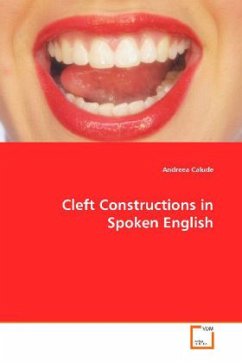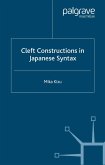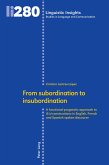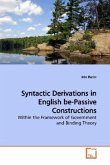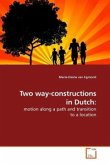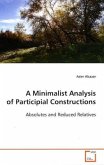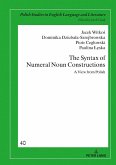Have you ever wondered why writing is taught in
schools? Why can''t we simply "do" writing, as we
manage speaking? Many people think they speak "badly"
or have "bad" grammar. Typically, grammar refers to
written language but do you know that there is such a
thing as spoken grammar? The syntax of spoken
language differs greatly from that of written
language. While some constructions are only found in
writing, others are mostly found in speech, e.g.,
clefts like "That''s what I had in mind". Clefts
constitute a grammatical means for drawing attention
to the most salient part of a message. English is
rich in cleft types and they are a vital tool in the
repertoire of its speakers and writers. However,
spoken clefts have distinct structural properties and
discourse functions from written clefts. They are
thus of interest to language teachers, particularly
since not every language has clefts. Further, some
cleft clauses are syntactically non-subordinate but
nonetheless discourse subordinate. This mismatch is
problematic for existing syntactic theories relying
on tightly integrated structures. Hence, clefts are
also of interest to theoretical syntax and to
computational linguistics.
schools? Why can''t we simply "do" writing, as we
manage speaking? Many people think they speak "badly"
or have "bad" grammar. Typically, grammar refers to
written language but do you know that there is such a
thing as spoken grammar? The syntax of spoken
language differs greatly from that of written
language. While some constructions are only found in
writing, others are mostly found in speech, e.g.,
clefts like "That''s what I had in mind". Clefts
constitute a grammatical means for drawing attention
to the most salient part of a message. English is
rich in cleft types and they are a vital tool in the
repertoire of its speakers and writers. However,
spoken clefts have distinct structural properties and
discourse functions from written clefts. They are
thus of interest to language teachers, particularly
since not every language has clefts. Further, some
cleft clauses are syntactically non-subordinate but
nonetheless discourse subordinate. This mismatch is
problematic for existing syntactic theories relying
on tightly integrated structures. Hence, clefts are
also of interest to theoretical syntax and to
computational linguistics.

